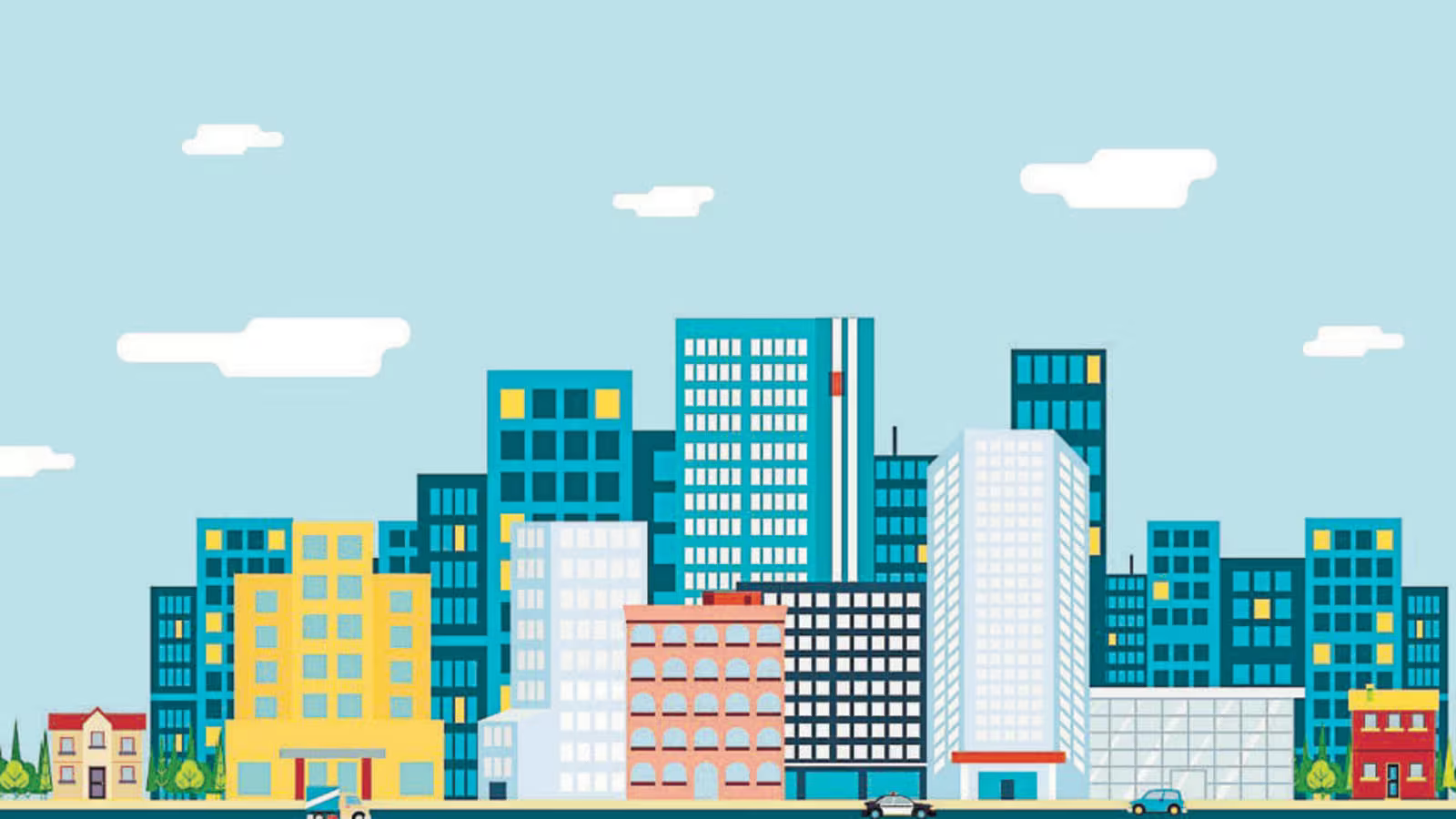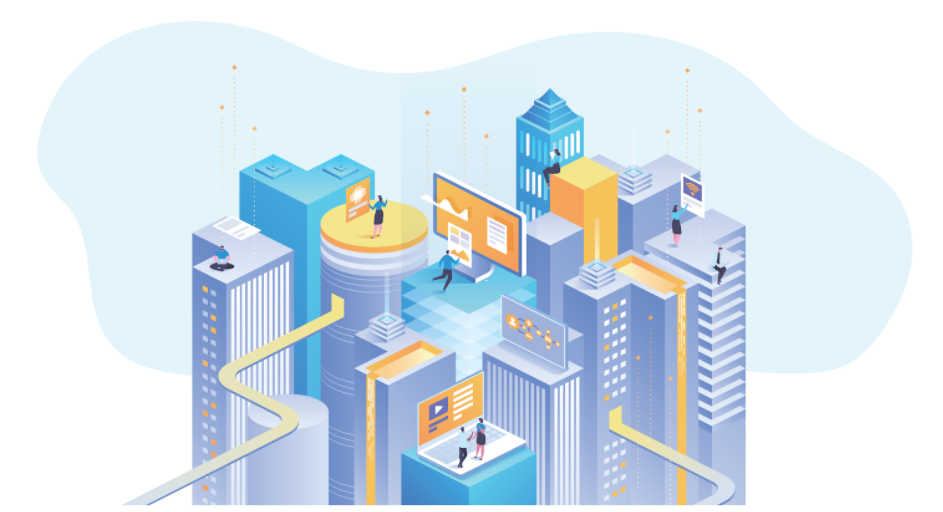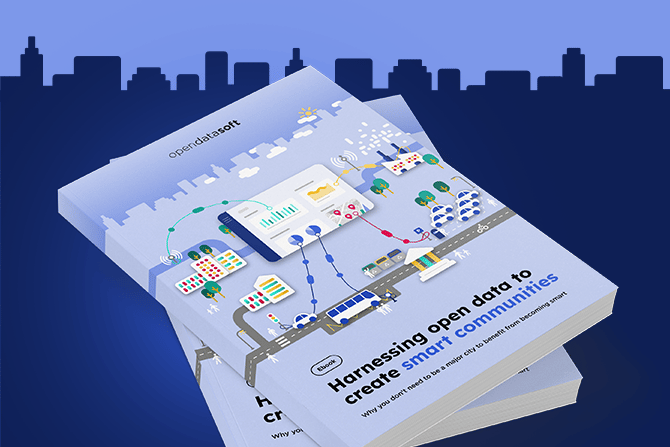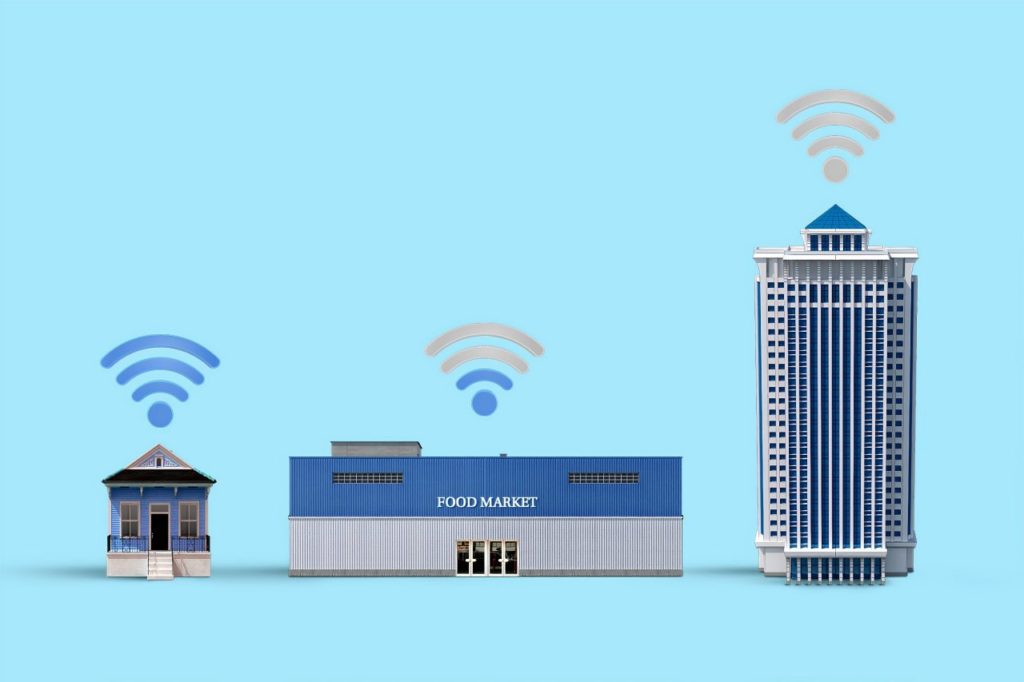In the age of rapid technological advancement, our cities are evolving at an astonishing pace.
The advent of smart city initiatives has ushered in a new era of urban development, one that merges innovation with sustainability.
This shift not only transforms the way we live but also significantly impacts the real estate landscape.
In this blog post, we will explore the exciting interplay between smart city initiatives and urban real estate development and how this dynamic duo is reshaping the future of our cities.
Smart City 101

(Photo from CII Blog)
The term "smart city" refers to a city that uses data-driven technologies and solutions to improve the quality of life for its residents. Before we dive into the impact of smart city initiatives on real estate development, let's define what we mean by "smart city." These cities make optimal use of the Internet of Things (IoT), artificial intelligence (AI), and other cutting-edge technologies to improve a variety of urban life functions, including transportation, energy, healthcare, and governance.
Let's now explore the intriguing ways that these initiatives are affecting the real estate industry.
Infrastructure Development

(Photo from Hindustan Times)
The creation of cutting-edge infrastructure is one of the smart city initiatives' most obvious effects on urban real estate. Upgrades to utility systems, public amenities, and transportation networks are all priorities for smart cities. Because of this, areas with improved infrastructure attract real estate developers, opening up opportunities for residential and commercial projects. These investments raise property values while also improving a city's appeal to prospective residents and companies.
Sustainability and Eco-friendly Design
Eco-friendly building techniques and green initiatives are frequently used in smart cities, which prioritize sustainability. The demand for sustainable real estate has increased as a result of this emphasis on environmental awareness. The demand for energy-efficient homes and commercial buildings with amenities like solar panels, rainwater harvesting systems, and smart thermostats is rising. Developers who follow these trends will be able to reach a growing market of consumers who care about the environment.
Technological Integration

(Photo from Medium)
Technology isn't just an extra in a smart city; it's woven into the very fabric of daily life. By including smart home features like automated lighting, security systems, and energy management, real estate developers must adjust to this. Properties with these conveniences command higher prices from buyers, which can boost a developer's bottom line.
Mixed-Use Developments
Smart cities often encourage mixed-use developments, where residential, commercial, and recreational spaces coexist harmoniously. This approach promotes walkability, reduces traffic congestion, and fosters a sense of community. Developers who embrace mixed-use projects can benefit from increased property values, as well as diversified revenue streams from various types of tenants.
Data-Driven Decision Making

(Photo from Opendatasoft)
Smart cities are dependent on data to function. To make informed decisions about everything from traffic management to waste disposal, they gather and analyze enormous amounts of data. These data can be used by real estate developers to spot trends and business opportunities. They can identify areas with rapid population growth, for instance, and make development plans in line with those areas. With this data-driven strategy, risks are reduced and ROI is increased.
Enhanced Quality of Life

(Photo from Stefanini)
The welfare of its citizens is given top priority in smart cities. They make investments in cultural amenities, recreational areas, and healthcare facilities. Because of the higher quality of life they provide, real estate in these areas becomes very sought-after. These conveniences command a premium from buyers and tenants, making these areas prime candidates for development.
Economic Growth

(Photo from Newsroom)
Smart cities tend to attract businesses and startups, thanks to their advanced infrastructure and technology-friendly environments. As businesses flock to these cities, the demand for commercial real estate skyrockets. This, in turn, fuels economic growth and creates a positive feedback loop where increased employment opportunities drive population growth, further boosting the real estate market.
Mobility Solutions
 (Photo from RideAmigos)
(Photo from RideAmigos)
Transportation efficiency and sustainability are key components of smart cities. These initiatives, which range from electric vehicle charging stations to bike-sharing programs, lessen the reliance on conventional cars and enhance urban mobility. By building housing close to transportation hubs, real estate developers can profit from this trend and raise the appeal of their properties to prospective buyers and tenants.
To conclude, in the ever-evolving landscape of urban real estate development, smart city initiatives have emerged as a driving force for change. From infrastructure upgrades to sustainability efforts, from technological integration to data-driven decision-making, these initiatives have reshaped our cities and, in turn, the real estate market.
For developers, embracing the principles of smart cities is not just a trend but a necessity. Those who adapt to these new realities will find themselves at the forefront of urban development, reaping the rewards of creating spaces that meet the needs and desires of our tech-savvy, eco-conscious, and forward-thinking society.
As we continue on this journey into the future, the influence of smart city initiatives on urban real estate development will only grow stronger. The cities of tomorrow are taking shape today, and the real estate sector is a crucial player in this exciting transformation. So, whether you're a developer, investor, or simply a city dweller, keep an eye on the smart city movement – it's shaping the world around us in more ways than we can imagine.
As always, thank you guys so much for taking the time to read this blog post - we here at Transactly are always grateful for the support! Stay tuned for more content coming every Monday, Wednesday, Friday, and Saturday.
We'd also like to list down the following sites that provided the inspiration for this blog post - go give them a read as well:
KG Projects: https://kgprojects.co.in/the-impact-of-being-a-smart-city-on-the-real-estate-market/
TS2 Space: https://ts2.space/en/the-impact-of-smart-cities-on-real-estate-and-urban-development/
iPleaders: https://blog.ipleaders.in/smart-cities-and-the-real-estate-industry/
Planet Moran: https://www.plantemoran.com/explore-our-thinking/insight/2018/04/thinking-about-becoming-a-smart-city-10-benefits-of-smart-cities